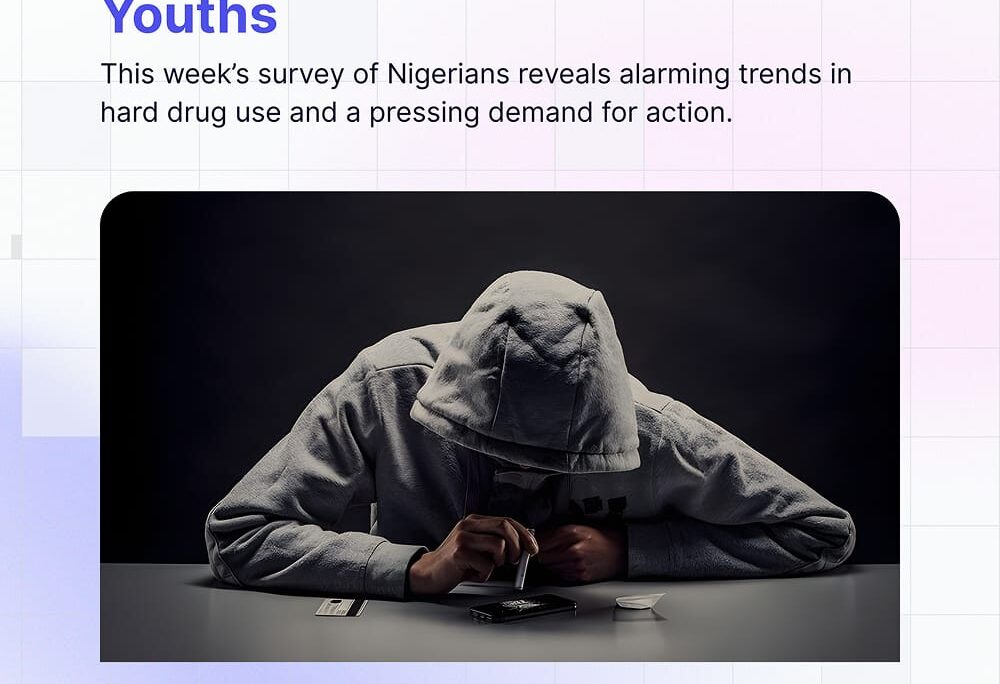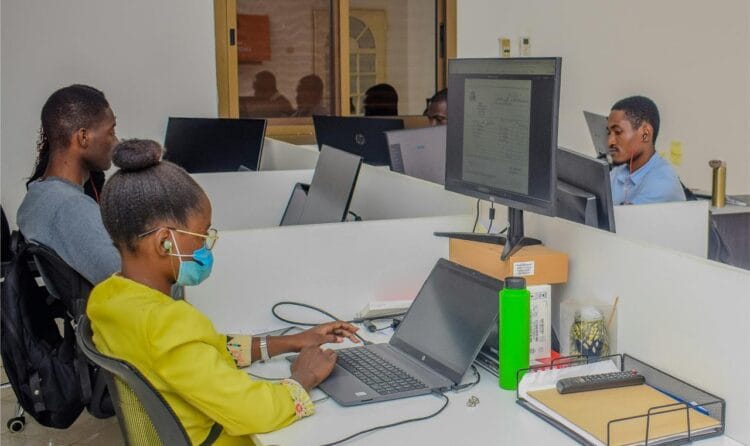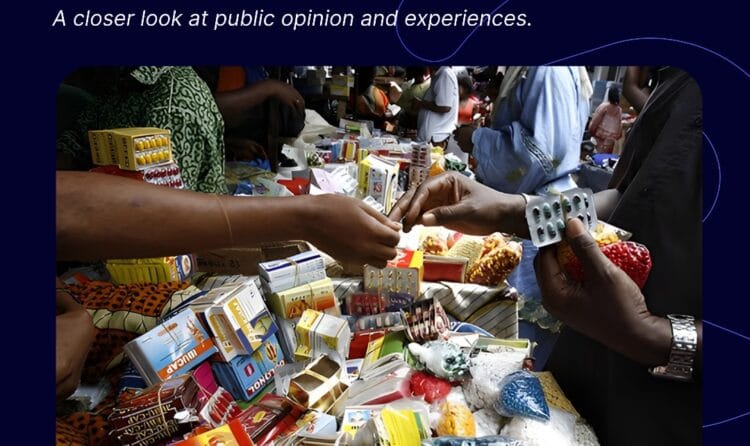Introduction
In recent years, the conversation around drug abuse in Nigeria has grown more urgent, and more complex. What was once whispered about in the corners of society has now become a full-blown public health concern, especially among young people. From prescription drug misuse to the rise of recreational narcotics, the issue of hard drug use among Nigerian youths demands a closer, evidence-based examination.
At ResearchGains, we recognize that data is more than just numbers. It is a mirror of reality. It tells the story of a generation navigating peer pressure, mental health struggles, unemployment, cultural influence, and a fast-evolving digital landscape. In this context, we set out to collect insights directly from the people most affected, i.e. Nigerian youths.
This survey explores critical questions such as how exposed the youths are to hard drugs today, the reason behind first-time or continued usage, whether or not the government is doing enough, the role of music, social media and trends in shaping perceptions of drug use, and most importantly, what these youths believe are the best solutions to hard drug addiction.
The responses were honest, revealing, and in some cases, deeply concerning. But they also shed light on opportunities, for intervention, education, policy reform, and community action.
In this post, we present each key data point alongside a visual chart and professional interpretation. Whether you’re a researcher, policymaker, health worker, parent, or just a concerned citizen, this analysis provides a grounded understanding of one of the most pressing social challenges facing Nigeria’s youth today.
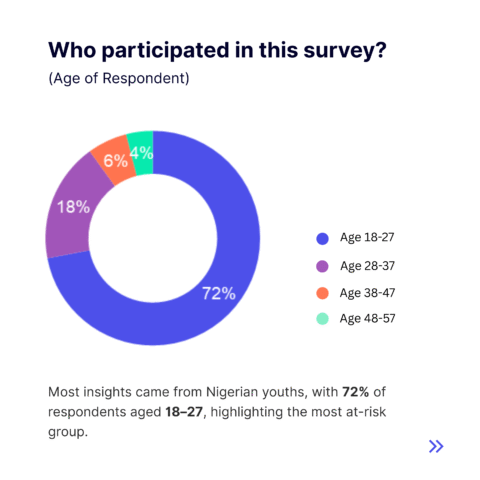
A majority of respondents (72%) were between the ages of 18–27, a group considered most vulnerable to the pressures of drug experimentation. This demographic dominance offers a focused insight into the youth perspective and highlights the urgency of addressing drug-related concerns within this age bracket.
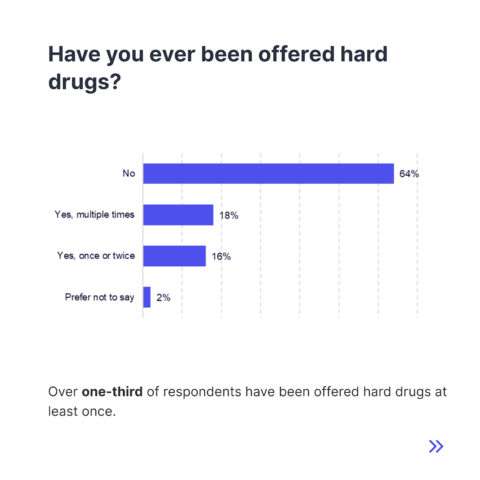
While 64% of respondents claimed they had never been offered hard drugs, 34% admitted to some level of exposure — either once or repeatedly. This suggests that peer or social exposure to drugs is more widespread than typically acknowledged. Only 2% chose not to answer, implying a relatively high level of candor.
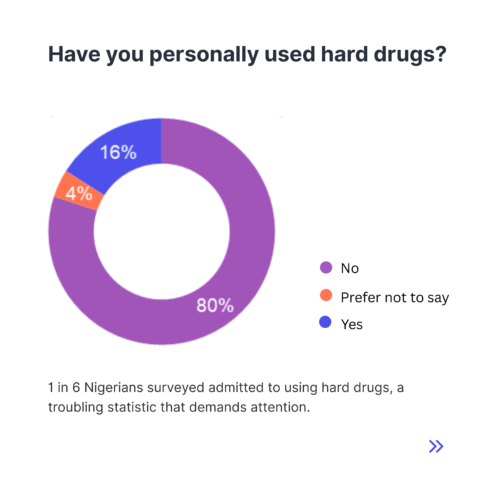
An encouraging 80% of respondents reported no personal use of hard drugs. However, the 16% who admitted to use reflect a serious concern, particularly given the potential underreporting due to stigma. This reveals a need for continued education and intervention targeting youth behavior and coping mechanisms.
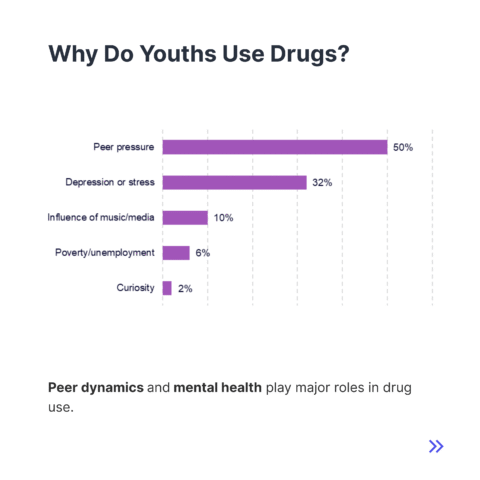
Half of all respondents (50%) identified peer pressure as the main driver of drug abuse among youths. This was followed by mental health challenges — such as depression or stress — accounting for 32%. Interestingly, only 10% pointed to media influence, while poverty and curiosity were seen as minor contributors. These insights point to the importance of psychosocial support in drug prevention strategies.
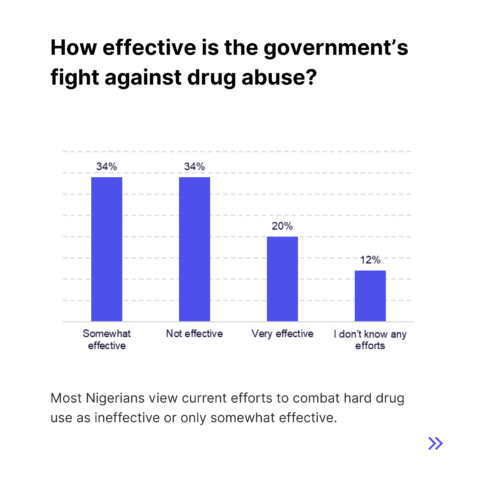
The data shows a split opinion: 34% believe current government efforts are not effective, while another 34% believe they are somewhat effective. Only 20% believe they are very effective, and 12% are unaware of any efforts at all. This highlights a trust gap between policymakers and the public, and suggests a need for improved visibility and evaluation of drug intervention programs.
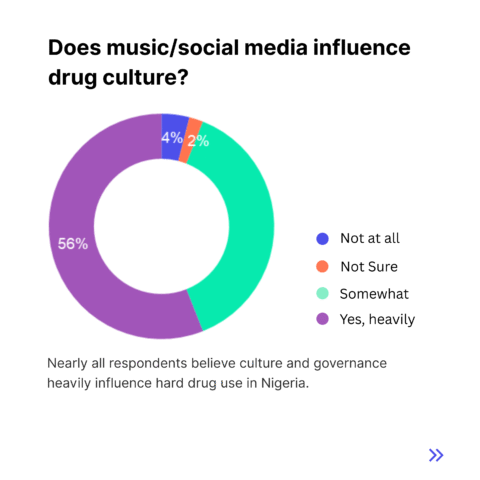
A significant 56% of respondents believe that music and social media heavily influence drug culture among youths, while 38% agree to a lesser extent. This overwhelming consensus shows the power of cultural tools in shaping youth behavior and the urgent need to promote responsible messaging through entertainment and digital platforms.
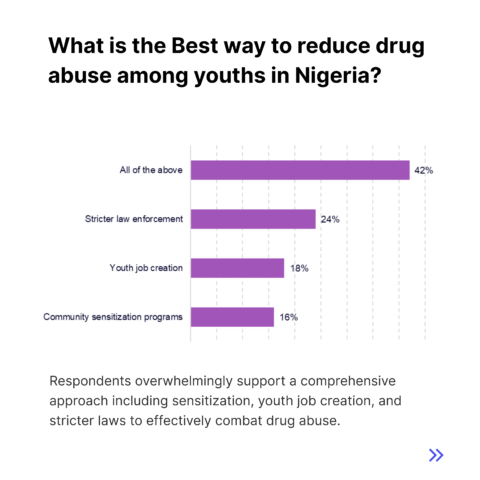
A majority (42%) believe the best solution is a combination of efforts: sensitization, employment, and enforcement. Another 24% support stricter law enforcement, while 18% prioritize job creation, and 16% advocate for awareness campaigns. This shows a clear demand for a multi-sectoral approach to drug prevention in Nigeria.
📌 Conclusion
The data reflects a youth population that is both aware of and vulnerable to the growing influence of drugs in their environment. It also calls for multi-layered strategies involving education, law enforcement, economic empowerment, and media responsibility. At ResearchGains, we remain committed to surfacing insights that can inform real solutions and drive change.
🔍 Want to stay informed about the real issues that matter in Nigeria?
Follow us on Twitter/X for more data-driven insights: https://lnkd.in/dHZRRWGy


